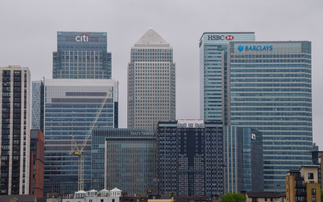Global survey of 145 private equity houses finds environmental, climate and sustainability issues increasingly key for investors
Environmental, social and governance (ESG) issues and sustainable development ambitions are becoming increasingly important priorities for investors, according to the results of a global PwC survey which points to signs of "increasing maturity" in the responsible investment sector.
The consultancy giant's fourth annual Private Equity Responsible Investment Survey published today draws on the views of 162 respondents from 35 countries and territories, including 145 private equity houses.
It found almost 81 per cent of respondents are currently reporting ESG matters to their boards at least once a year, while just over a third are reporting on ESG even more frequently.
Moreover, 91 per cent of investors said they now had an ESG or sustainable development policy in place or in development, an uptick from 80 per cent five years ago. Of these, 78 per cent are using or developing strategies to track, measure, and report on progress towards their responsible investment of ESG policies, the survey found.
Two-thirds of respondents also said they have identified and prioritised SDGs that are relevant to their investments - up from 38 per cent in 2016 - while 43 per cent said they have a proactive approach to monitoring and reporting portfolio company performance against the UN Sustainable Development Goals (SDGs), compared to just 16 per cent in 2016, PwC said.
Will Jackson-Moore, global private equity, real assets and sovereign fund leader at PwC, said the "really encouraging" poll results showed responsible investment was "starting to come of age in terms of driving sustainable business practice".
"The private equity sector has a vital role to play in supporting sustainable development," he said. "It is heartening to see that responsible investment is seen as a matter for those at the heart of the investment process and needs to be supported by rigorous monitoring and reporting. LPs are playing a vital role in applying pressure to act on key areas of environmental, social and governance concerns and in influencing board agendas. Yet while responsible investment may only be at the 'young adult' stage of development, these are signs of increasing maturity."
However, he also said the survey showed there was still a distance between those investors considering action and those actually taking proactive steps to integrate ESG and sustainable development considerations into their decision making.
For example, while 83 per cent of respondents cited climate risk as a concern, only 31 per cent have taken action to address it, Jackson-Moore said, which he warned could give rise to "impact-washing" where investments claim to have a larger environmental or social impact than evidenced.
"Investors and private equity leaders have a role to play in continuing to influence responsible investment behaviour, through demanding more robust and granular reporting around environmental, social and governance matters," he explained. "We are at the stage that we can see ESG genuinely driving returns, and enhanced ESG practices can potentially enhance multiples: it may well be the next big value lever."









